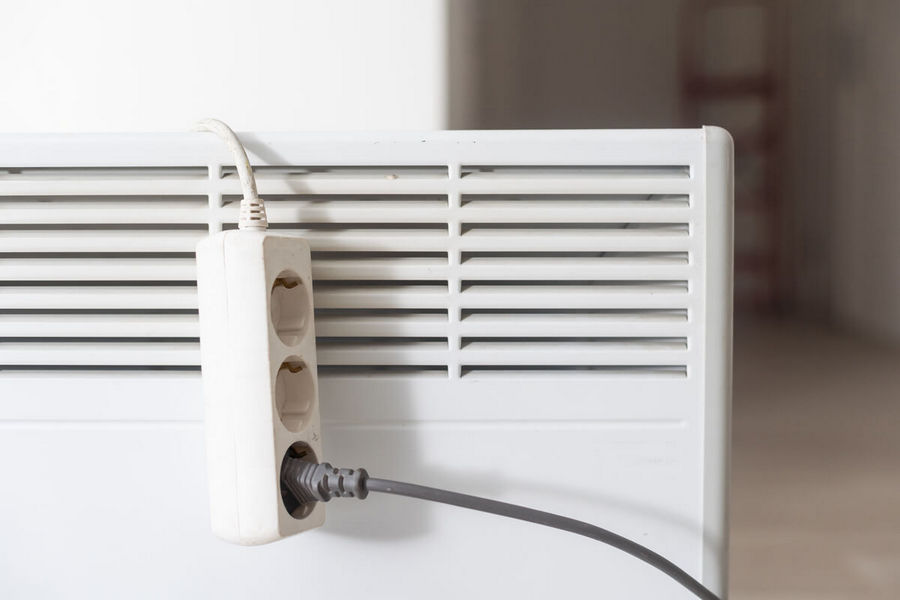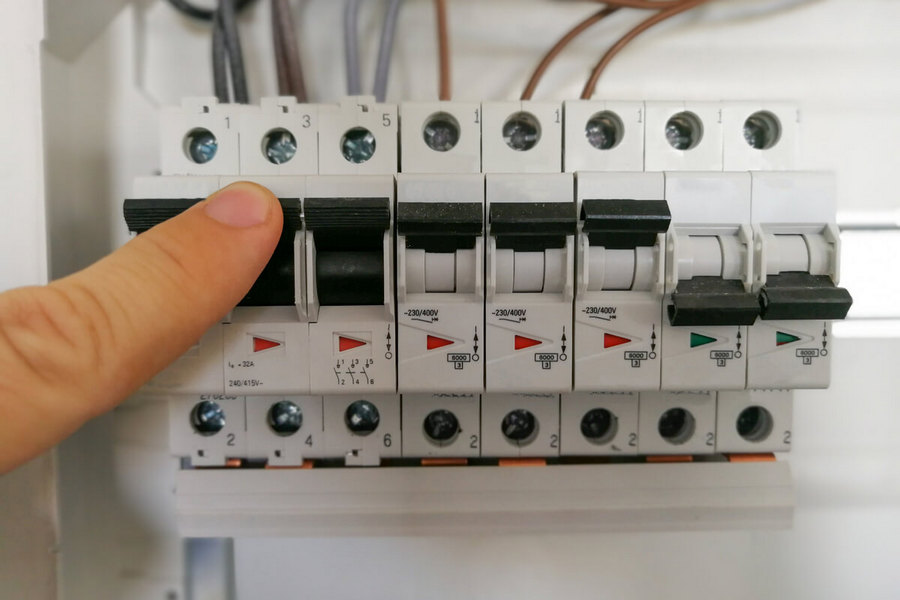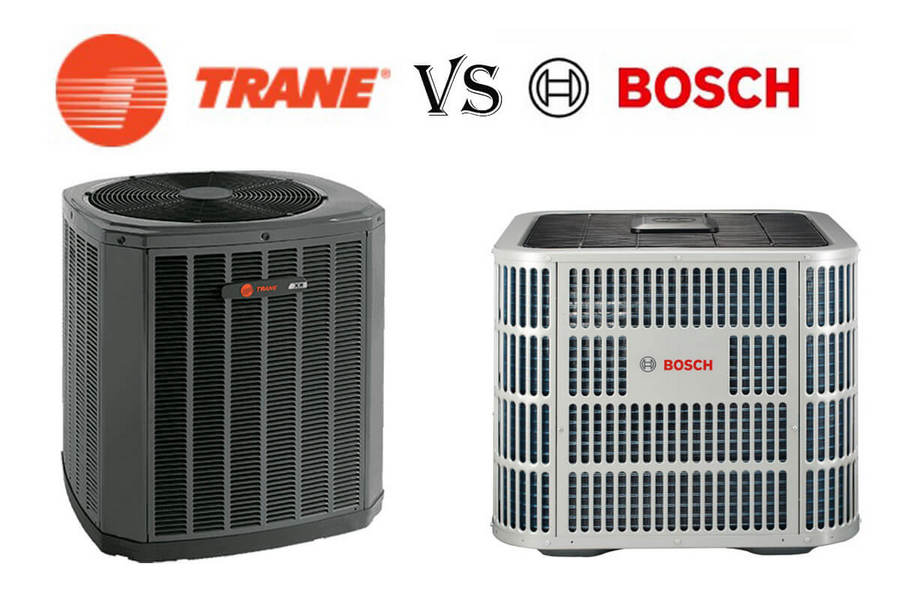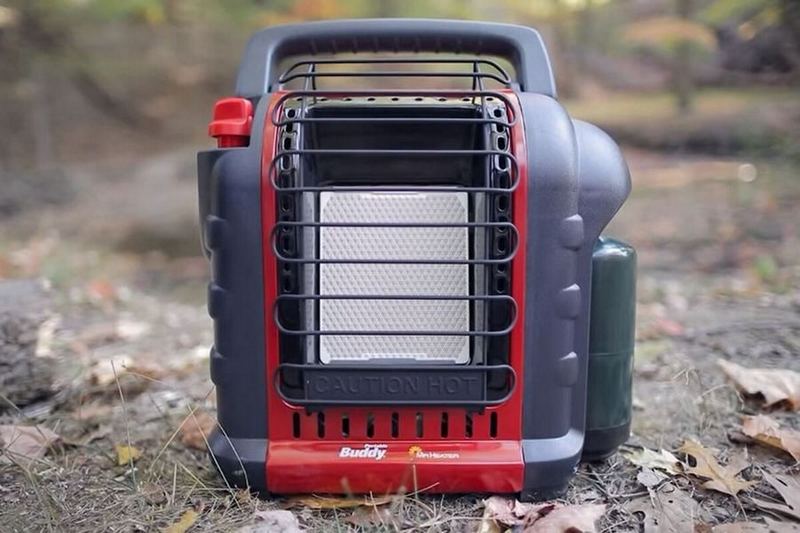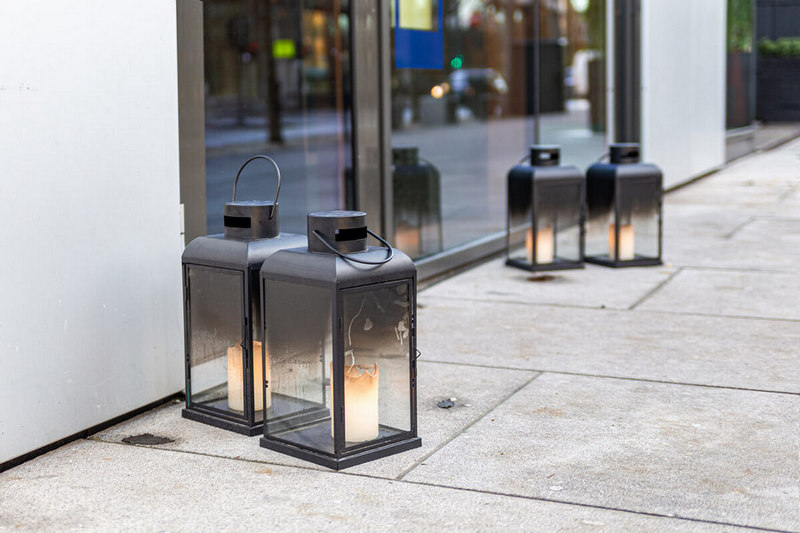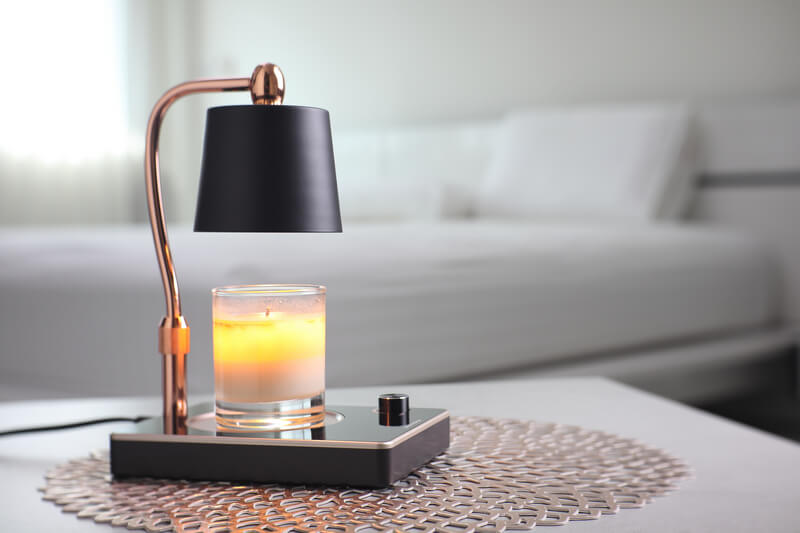Want to stay warm without cranking up your thermostat? Space heaters can be a great solution. But should you plug them into an extension cord or power strip?
If you’re like most homeowners, the answer is probably yes. Extension cords and power strips give you the flexibility to place heaters exactly where you need them.
However, this common practice is extremely dangerous and can cause electrical fires or electrocution.
In this post, I’ll explain:
- Why you should never use an extension cord or power strip with a space heater
- Safety tips if you have no choice but to use an extension cord
- How to choose the right heavy-duty extension cord or power strip if needed
After reading, you’ll understand why direct wall outlets are so important for space heaters – and how to use them safely if you must rely on extension cords in a pinch.
Reasons You Should Never Use an Extension Cord or Power Strip
1. Incapable of handling high current
One reason why you should never run a space heater on an extension cord is the issue of overheating, which can cause a fire. Generally, most extension cords and power strips are designed to handle lower amounts of current (Amps). They typically have ratings between 10 to 15 Amps.
On average, a space heater draws around 1,500 Watts of power and 12.5 Amps or more. The current will increase when you plug an electric heater into an extension cord that has a lower rating than the heating appliance.
High current can cause the wires of the extension cord or power strip to overheat and melt the insulation. If not addressed immediately, overheating in the wires can lead to a fire. Also, exposed wires present the danger of an electric shock.
2. Extension cords cause efficiency loss
Efficiency is essential when it comes to heating a room in your home. You want to spend less while getting the most heat from your space heater. But when you run a space heater on an extension cord, the efficiency of the heater tends to decrease.
Depending on their gauge, an extension cord or power strip can only deliver power to an appliance at a specific wattage and distance.
An electrical heating appliance relies on a good power source that supplies sufficient energy. The wires on extension cords generate electrical resistance. This reduces the amount of power delivered to the connected appliance.
And thus, it is best to plug a space heater directly into an electrical outlet to reduce power loss.
3. Tripping, fire, and other hazards
The extension cord you’re using to run a space heater could get in someone else’s way. Cords lying across a room are potential trip/slip/fall, fire ignition, and electric shock hazards.
Kids and pets are most likely to trip the cables. Moreover, your space heater could break after getting tipped over.
The impact of a space heater falling over can cause damage as it hits the floor. It might also melt or burn something.
Today’s space heaters do come with some sort of tip-over protection. It is a feature in the device that automatically shuts off the heat after getting tipped over. However, the space heater can still burn something if it hasn’t cooled yet.
Pay special attention if your space heater doesn’t have an automatic shut-off feature. It can leave a dark, burned stain if it accidentally falls over your carpet. Or worse, it could potentially start a fire.
Can You Use a Heavy-Duty Extension Cord With a Space Heater?
Do not use an extension cord or power strip with your space heater. Space heaters are mostly responsible for home heating-related fires. They are the 2nd-leading cause of home fires in the U.S.
However, if you have no other option but to run a space heater on an extension cord, you must get a heavy-duty one. Heavy-duty extension cords should have the same or greater wire gauge than the standard house wiring.
In North America, heavy-duty extension cords typically have a wire gauge of #12. In Asia and Europe, the #14 gauge is considered heavy-duty. It is known to be ideal for the 220-240 volt single-phase wiring used in those regions.
Space Heater Extension Cord/Power Strip Safety Tips
Here are some safety tips when you want to use an extension cord or power strip with your space heater according to the ESFI:
- Make sure to choose a space heater that comes with a label showing that it has been tested and listed by a recognized testing laboratory.
- If you just purchased a space heater, always read the instruction manual and look for warning labels before operating the device.
- Examine your device and look for cracks and loose connections. Do not use the device if you see any frayed, worn, or damaged components.
- Do not leave the device unattended. Always turn it off before leaving the room.
- Remember, space heaters are used only to provide supplemental heat. Never use it for activities other than heating a room such as cooking, drying your clothes, or warming your bed.
- Keep your space heaters 3 feet (1 meter) away from flammable materials such as papers, clothing, rugs, etc.
- To avoid a tripping hazard, do not place space heaters in areas of your home where foot traffic is high.
- Whenever possible, plug your space heater directly into an outlet. Also, make sure no other appliance is plugged into that same outlet.
- Avoid placing space heaters that make them easy to tip or fall over such as furniture, tables, cabinets, carpets, rugs, etc.
- Make sure that the extension cord or power strip you are using has a label with a wattage rating on it.
- The wattage rating of your extension cord or power strip should meet or exceed that of your connected appliance or space heater.
- Never use damaged cords or power strips especially when it feels hot or when the wires are exposed. Overheating can lead to a fire and touching even just a single strand of energized wire can cause an electric shock.
- Purchase extension cords and power strips that are approved by recognized testing organizations such as UL, ETL, or CSA.
READ NEXT: Can you use an extension cord with an air conditioner?

